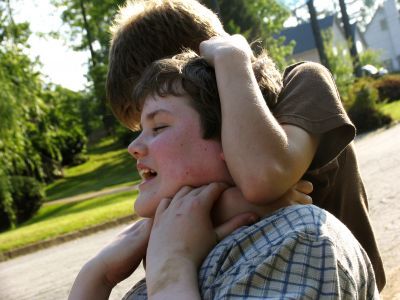Psychiatrists' bible to get new conditions, names

Your support helps us to tell the story
From reproductive rights to climate change to Big Tech, The Independent is on the ground when the story is developing. Whether it's investigating the financials of Elon Musk's pro-Trump PAC or producing our latest documentary, 'The A Word', which shines a light on the American women fighting for reproductive rights, we know how important it is to parse out the facts from the messaging.
At such a critical moment in US history, we need reporters on the ground. Your donation allows us to keep sending journalists to speak to both sides of the story.
The Independent is trusted by Americans across the entire political spectrum. And unlike many other quality news outlets, we choose not to lock Americans out of our reporting and analysis with paywalls. We believe quality journalism should be available to everyone, paid for by those who can afford it.
Your support makes all the difference.If your child is often grumpy and throws fits, they could soon be diagnosed with TDD, or temper dysregulation with dysphoria to give it its full name.
If they have Asperger's syndrome, you might have to stop calling it that and switch to "mild autism spectrum disorder." And if getting a handle on math is their problem, they could have "dyscalcula."
Those are just some of the new names and mental disorders released Friday by the American Psychiatric Association (APA) that could be included in the next edition of mental health practitioners' tome of reference, the Diagnostic and Statistical Manual, usually called the DSM.
If all the proposed changes make it into the new DSM, which is due to be released in three years, "mental retardation" will become the more politically correct "intellectual disability," and conditions such as binge eating will be recognized as bona-fide mental disorders.
Pathological gamblers will get their very own category - behavioral addictions.
But if you're looking for a classification for kids of all ages who lock themselves in their rooms and spend hours on end on the Internet, you'll have to wait.
"Internet addiction" was considered for inclusion in the same behavioral addiction category as pathological gambling, but the work group decided there was insufficient research data to do so.
The APA has posted all the proposed changes to the DSM on the Internet to allow the public to review them and comment.
The new criteria for diagnosing a condition and new conditions will then be reviewed and refined over the next two years, and field trials will be conducted on some of the criteria to see if they work in a real-life scenario.
kdz/oh
Join our commenting forum
Join thought-provoking conversations, follow other Independent readers and see their replies
Comments